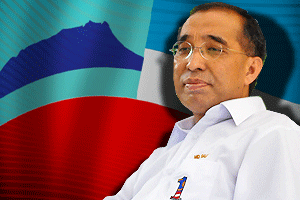Don’t kill BR1M just to spite the government
Salleh Said Keruak
Malaysia’s BR1M is being criticised as a scheme to bribe the voters into voting for Barisan Nasional. Judging by the ‘confessions’ in the social media, however, it seems that many who are recipients of this aid who accept the cash handouts but still vote opposition anyway. They are not in any way enticed into vote government just because the government gives them money.
What Malaysia is doing is not unique and neither is it the first. Many other countries have been doing the same thing for the last decade or two and statistics show that it has been successful in assisting the less fortunate segment of the population in releasing them from the shackles of poverty.
In 2000, a new idea on how to directly help the people other than by just building schools, hospitals and roads and by supplying water and electricity began to emerge. This scheme called ‘conditional cash transfers’ or CCTs first appeared in Latin America and then soon spread all over the world.
It was later copied in Africa and schemes such as ‘Give Directly in Kenya’, which was started by Michael Faye, managed to boost household incomes considerably. Studies show that the scheme succeeded in pulling people out of poverty.
Johannes Haushofer from the Massachusetts Institute of Technology and Jeremy Shapiro, a former board member of Give Directly in Kenya, who randomly selected and studied poor households in 63 villages that have received this aid, say that the number of children going without food for a day has fallen by over a third while livestock holdings have risen by half. A year after the scheme began, incomes had gone up by a quarter.
In Vietnam, in a trial scheme implemented in 2006 where 550 households were given one-off handouts, it was found that two years later the poverty rate had fallen by 20%. The scheme was actually dubbed ‘cash for coffins’ because it was discovered that elderly recipients of this aid spent the money on their funeral arrangements to save their children the problem of finding the money after they die.
In Uganda, US$10,000 is given to groups of 20 people who then spend a third of the money to learn a trade and the balance on tools and livestock. They then set up joint enterprises and over four years their earnings increased by 50%. This scheme has one condition, however — applicants must first submit a business plan.
In Brazil, the scheme is called Bolsa Família, a program aimed at reducing short-term poverty through direct cash transfers. The Economist describes Bolsa Família as an anti-poverty scheme invented in Latin America that is winning converts worldwide.


